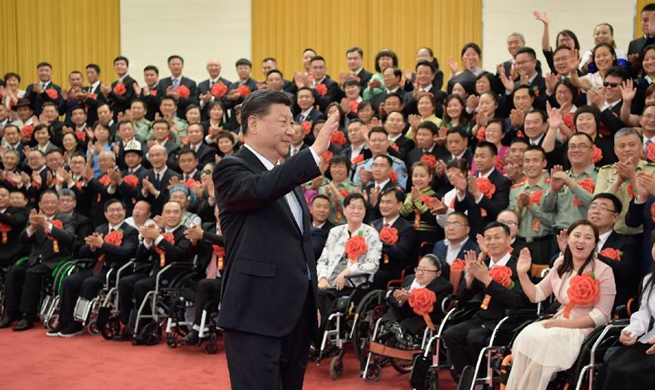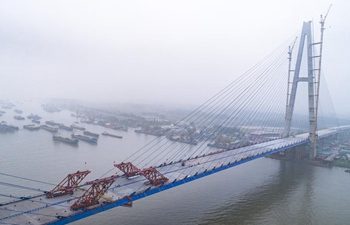WELLINGTON, May 18 (Xinhua) -- New Zealand will join Chile and Singapore in talks to establish new trade rules and best practice for the digital era.
"The future of international trade is digital. Our three countries have a strong record of working together on the rules and best practice for international trade policy," Trade and Export Growth Minister David Parker said in a statement on Saturday.
Parker, together with Chile's Minister of Foreign Affairs Roberto Ampuero and Singapore's Minister of Trade and Industry Chan Chun Sing, announced the start of the negotiations on the sidelines of the Asia-Pacific Economic Cooperation (APEC) meeting of Ministers Responsible for Trade in Vina del Mar, Chile.
The unprecedented growth of digital trade has led to a lag in the development of relevant international trade rules and norms, Parker said, adding these talks are an opportunity for New Zealand to help shape the international rules in this area to ensure they make it easier for businesses and consumers to take advantage of digital trade opportunities, while protecting public and private interests.
"We will ensure that issues of importance to New Zealanders such as personal privacy, consumer protection, data management, transparency and openness are appropriately protected," the minister said.
To a trade-dependent country distant from key markets, digital trade can help businesses, particularly small and medium sized enterprises, overcome the challenges of scale and distance, he said.
"Digital technologies can also potentially support the increased participation in trade by women, Maori and rural communities, helping spread the benefits of trade across our communities and regions -- a key aim of our Trade for All policy," Parker added.
The negotiation with Chile and Singapore on a new digital trade agreement will also complement and support the ongoing WTO negotiations on e-commerce, as well as digital economy work streams within APEC and the OECD, he said.
In light of the March 15 terrorist attacks in Christchurch and the government's strong concern about the role of internet technologies in enabling and promoting violent extremism, New Zealand will also be looking to explore with Singapore and Chile how the agreement might address digital economy issues relating to a safe, secure and free internet, including the issue of eliminating terrorist and violent extremist content online without compromising human rights.













